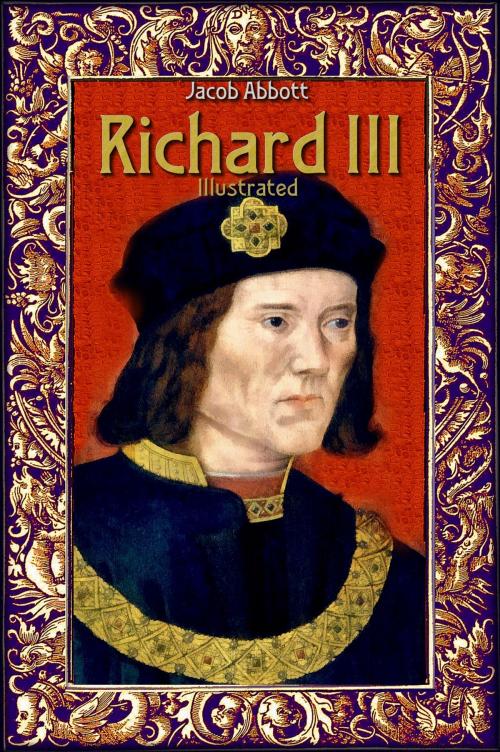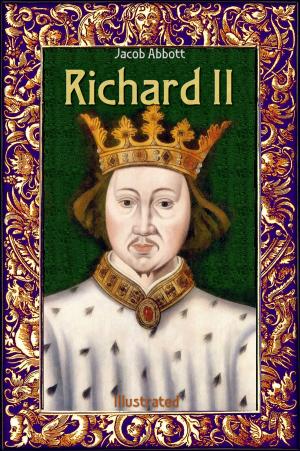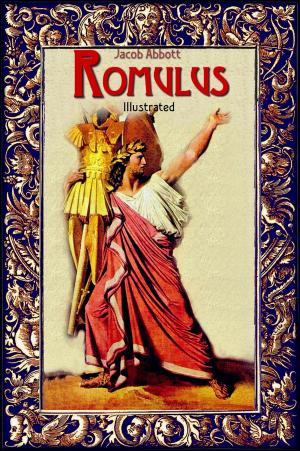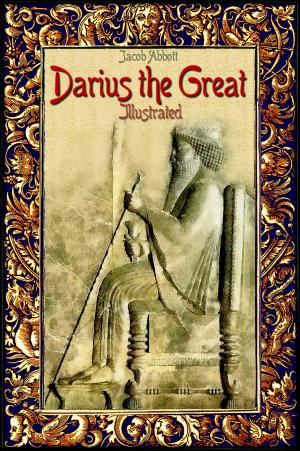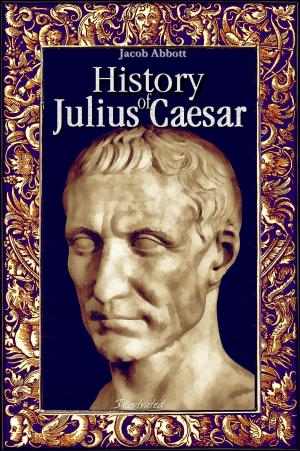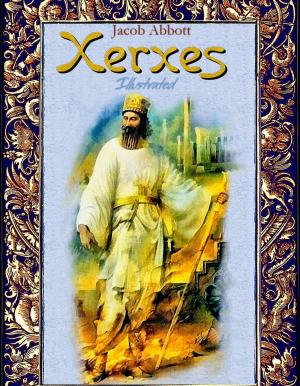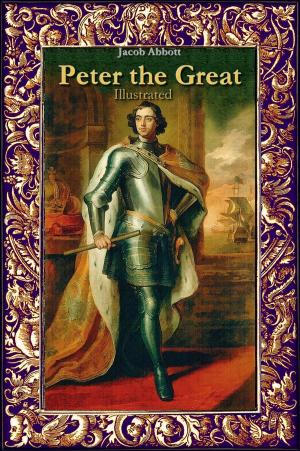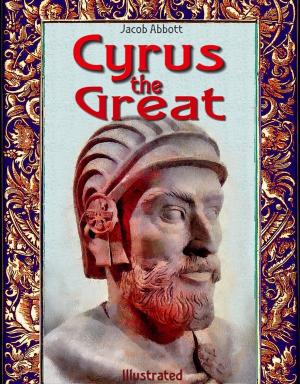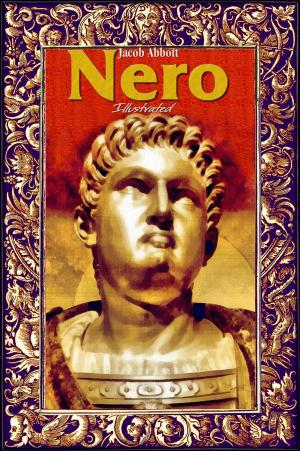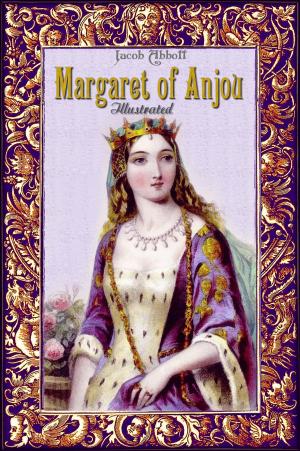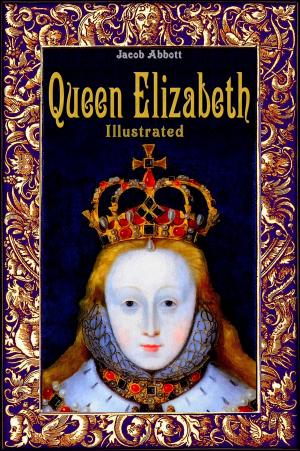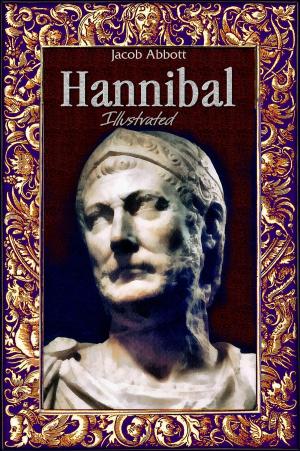| Author: | Jacob Abbott | ISBN: | 1230000253361 |
| Publisher: | History Alive | Publication: | July 19, 2014 |
| Imprint: | 1 | Language: | English |
| Author: | Jacob Abbott |
| ISBN: | 1230000253361 |
| Publisher: | History Alive |
| Publication: | July 19, 2014 |
| Imprint: | 1 |
| Language: | English |
The book "Richard III" by Jacob Abbott nowadays is in the public domain, but a great work has been done by Publisher to this version to make an electronic book that contrasts favorably to the original version. A lot of errors that exist in the free versions have been corrected; proper navigation is available or shortly, the ASCII text has been converted into a proper e-book. And the most important, in addition to original illustrations were added many new illustrations that help us to see how the History comes to Life.
King Richard the Third, known commonly in history as Richard the Usurper, was perhaps as bad a man as the principle of hereditary sovereignty ever raised to the throne, or perhaps it should rather be said, as the principle of hereditary sovereignty ever made. There is no evidence that his natural disposition was marked with any peculiar depravity. He was made reckless, unscrupulous, and cruel by the influences which surrounded him, and the circumstances in which he lived, and by being habituated to believe, from his earliest childhood, that the family to which he belonged were born to live in luxury and splendour, and to reign, while the millions that formed the great mass of the community were created only to toil and to obey. The manner, in which the principles of pride, ambition, and desperate love of power, which were instilled into his mind in his earliest years, brought forth in the end their legitimate fruits, is clearly seen by the following narrative.
Jacob Abbott (1803 – 1879) was a prolific American writer with vast and complete bibliography. It was not until about 1848 that he and his brother John Stevens Cabot Abbott embarked on the idea of doing a series of biography targeted to young people. His target audience was age "15 to 25", and the Abbott brothers eventually produced a set of biographies that were critically acclaimed, and widely read. Within a few years of their publication, the Abbott biographies became standard reference works of history, and were available in libraries throughout America. They were originally published as the ‘Illustrated History’ series, but were republished many times during the next sixty years in various collections, entitled ‘Famous Characters of History’, ‘Famous Queens of History’, and others. They were most recently republished in the early 1900’s as the ‘Makers of History’ series. In addition to these series, Jacob Abbott wrote at least thirty additional children’s books, as well as many books and articles regarding education for the young, directed at parents and educators. He also wrote several explicitly Christian books, teaching the tenets of Christian theology and moral instruction to the young. Here is what Abraham Lincoln wrote of Abbott's historical series: "I want to thank you and your brother for Abbott’s series of Histories. I have not education enough to appreciate the profound works of voluminous historians, and if I had, I have no time to read them. But your series of Histories gives me, in brief compass, just that knowledge of past men and events which I need. I have read them with the greatest interest. To them I am indebted for about all the historical knowledge I have."
The book "Richard III" by Jacob Abbott nowadays is in the public domain, but a great work has been done by Publisher to this version to make an electronic book that contrasts favorably to the original version. A lot of errors that exist in the free versions have been corrected; proper navigation is available or shortly, the ASCII text has been converted into a proper e-book. And the most important, in addition to original illustrations were added many new illustrations that help us to see how the History comes to Life.
King Richard the Third, known commonly in history as Richard the Usurper, was perhaps as bad a man as the principle of hereditary sovereignty ever raised to the throne, or perhaps it should rather be said, as the principle of hereditary sovereignty ever made. There is no evidence that his natural disposition was marked with any peculiar depravity. He was made reckless, unscrupulous, and cruel by the influences which surrounded him, and the circumstances in which he lived, and by being habituated to believe, from his earliest childhood, that the family to which he belonged were born to live in luxury and splendour, and to reign, while the millions that formed the great mass of the community were created only to toil and to obey. The manner, in which the principles of pride, ambition, and desperate love of power, which were instilled into his mind in his earliest years, brought forth in the end their legitimate fruits, is clearly seen by the following narrative.
Jacob Abbott (1803 – 1879) was a prolific American writer with vast and complete bibliography. It was not until about 1848 that he and his brother John Stevens Cabot Abbott embarked on the idea of doing a series of biography targeted to young people. His target audience was age "15 to 25", and the Abbott brothers eventually produced a set of biographies that were critically acclaimed, and widely read. Within a few years of their publication, the Abbott biographies became standard reference works of history, and were available in libraries throughout America. They were originally published as the ‘Illustrated History’ series, but were republished many times during the next sixty years in various collections, entitled ‘Famous Characters of History’, ‘Famous Queens of History’, and others. They were most recently republished in the early 1900’s as the ‘Makers of History’ series. In addition to these series, Jacob Abbott wrote at least thirty additional children’s books, as well as many books and articles regarding education for the young, directed at parents and educators. He also wrote several explicitly Christian books, teaching the tenets of Christian theology and moral instruction to the young. Here is what Abraham Lincoln wrote of Abbott's historical series: "I want to thank you and your brother for Abbott’s series of Histories. I have not education enough to appreciate the profound works of voluminous historians, and if I had, I have no time to read them. But your series of Histories gives me, in brief compass, just that knowledge of past men and events which I need. I have read them with the greatest interest. To them I am indebted for about all the historical knowledge I have."
